Judged on componentry alone, Thronebreaker – CDPR's 2018 Witcher offshoot – should not be a game I'd enjoy.
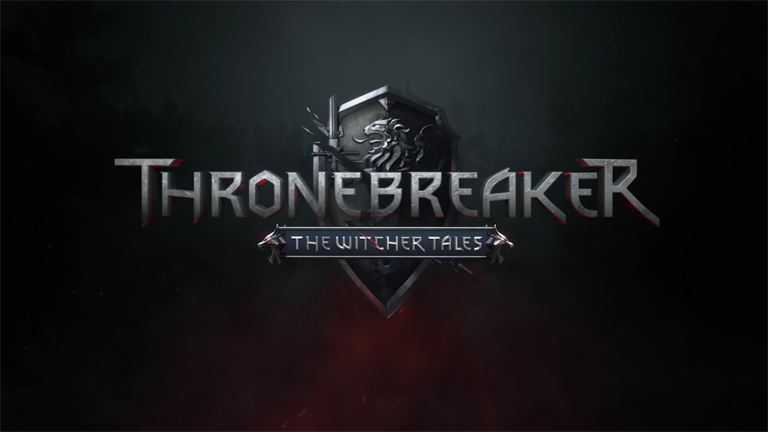
Despite some branchings, its story is linear – giving you an area to complete before shuffling you off to the next one. Its RPG credentials are flimsy, at best, with no inventory to manage, no stats to improve and quests which – at my most generous – I'd be hard-pressed to describe as anything other than "limited." Its complexity, as a game, is a step removed from the likes of Talisman. And, worst of all, it's a card game at heart – and if there is one mechanic this pig considers backwards, tacky and overused in computer games — it's cards... Using a 9th century idea to power your software is clear indication the overall design could have done with more deliberation.
And yet.
Here's a crazy notion: I love it.
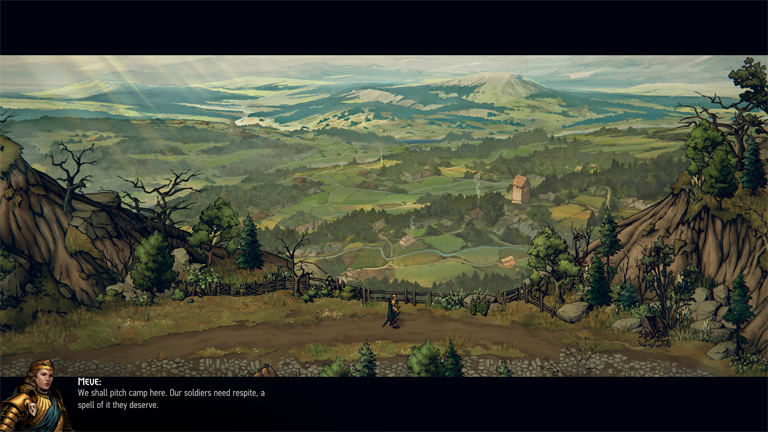
Queen Meve's comeback tour to reclaim her lost kingdom and prove, once and for all, that a woman who knows her way around a sword should not be trifled with may not be as complex as the Witcher games, but is quite the enjoyable romp nonetheless.
The overall production, as befitting CDPR's pedigree, is nothing short of beautiful, with a compelling narrative, trotter-chewingly difficult decisions (of the "no pleasing everyone" variety made infamous by Witchers 1-3); excellent VO work from some truly versatile actors and visuals that go above and beyond what a game of this sort could have gotten away with.
As for gameplay, it is divided between Diablo-esque exploration (where your fully-animated Meve sprite jogs around the gorgeous, isometric countryside collecting resources, chatting to commoners, picking up quests and running headlong into trouble); the camp (where you upgrade buildings and units, keep up with correspondence or chat with your more notable followers); and, well, Gwent.
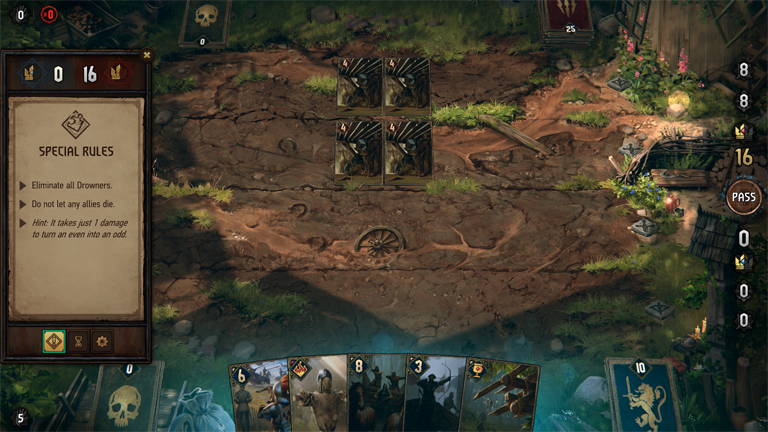
The main mechanic of the game and its means of resolving every pivotal situation – from armed conflict to cows, and everything in between – is that venerable card game of Witcher 3 fame, except with a bit of a twist.
Gwent encounters fall broadly into one of two categories in Thronebreaker, the first being battles (where you encounter an opponent that you have to defeat); and the second being puzzles (where you are presented with a conundrum that has a single, specific solution). The main difference between the two is that in battles, you use the deck you built in your camp, whereas puzzles give you a premade hand that has to be dealt in a specific way to resolve the situation.
In case you are not a fan of brain-teasers, rest easy: puzzles are strictly optional, offering extra rewards that make the main plot a little easier to get through. Also, none of them are that hard... You know how some folks can spot synergies between card abilities and align them in such a way that defeating any opponent is a breeze? Yeah, well — I'm not one of those and even I could figure out every puzzle in Thronebreaker without a problem.
Eventually.
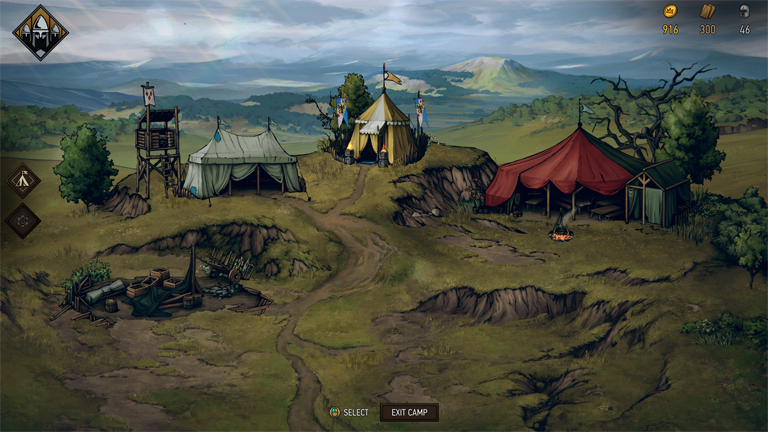
With impactful decisions that may affect troop morale or even make key NPCs abandon your cause, Thronebreaker spans five acts and an epilogue for about 30-40 hours of solid fun. And although it has zero replay value (unless you really want to see the alternate outcomes of individual decisions), as a narrative and an experience it does not disappoint.
About the only qualm I have with the game is its save system, which – in a weird, Rogue-like way – depends solely on auto-saves or saving the game on exit. That alone, however, is miniscule marring in an otherwise surprisingly compelling production.
If you wanted to play more Gwent offline, have a soft spot for underdogs, enjoy overcoming Seemingly Insurmountable Odds, or simply wanted to find out how Geralt of Rivia got his title, Thronebreaker: The Witcher Tales is the game for you. Straight as an arrow, it might not impress with complex mechanics or extensive gameplay variety, but the arrowhead's sharp, the fletching's beautiful and its heft on par with quebracho (which, if we carry the "arrow" analogy a step further, might also account for why it doesn't fly that far — snort!).
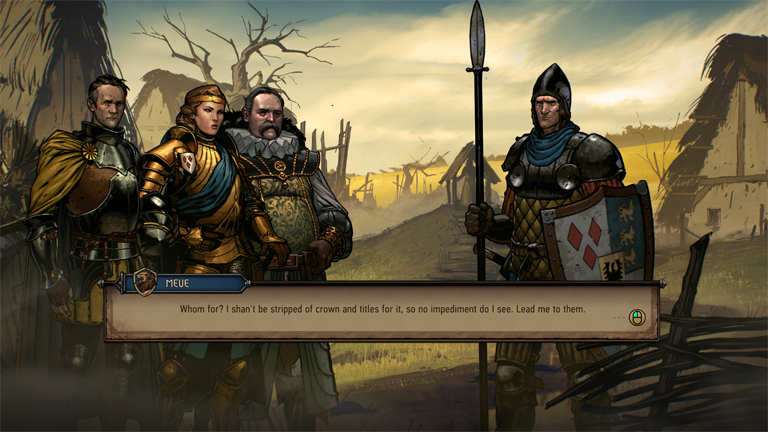
Nine times out of ten, games use the card mechanic as a crutch – to cover for a lack of programming ability, a dearth of original ideas or a way to keep costs down by resorting to something tried-and-true... But every now and again, a game comes along that has appeal, substance and polish (pun intended) and simply deigns to use cards because it wants to. A game like that is no longer a mere "card game": it is a "proper game with cards in it."
And Thronebreaker? Thronebreaker is that tenth game.
